50 Essential Chatbot Statistics for Customer Service in 2025
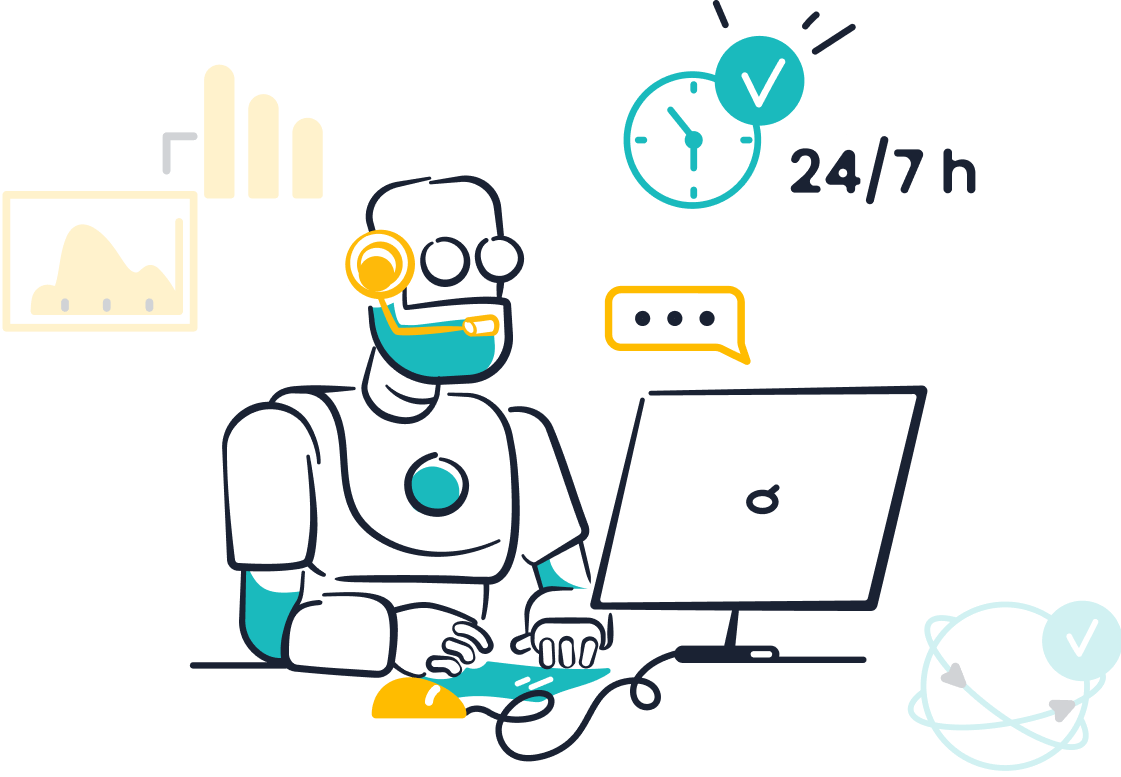
The year 2025 marks a turning point for customer service as businesses increasingly embrace AI-driven tools. Chatbots in customer support are no longer a novelty but a necessity. With the global chatbot market projected to reach $9.56 billion, their role in transforming customer service interactions is undeniable. Companies are adopting chatbots to save up to 30% in support costs, amounting to $8 billion in savings. AI in customer service is also reshaping eCommerce, where chatbot-facilitated transactions are expected to hit $142 billion.
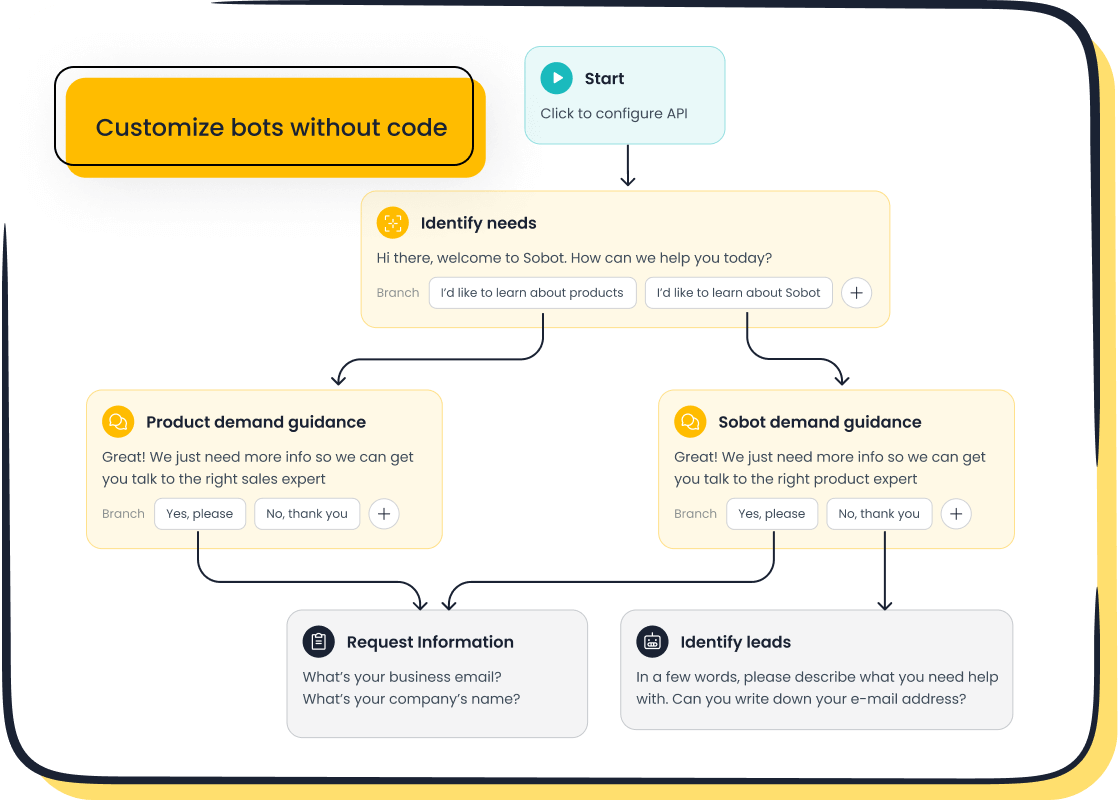
Sobot’s AI-powered chatbot exemplifies these advancements. Its multilingual, no-code platform delivers 24/7 support, improving efficiency by 70%. Businesses using Sobot have reported significant cost reductions and enhanced customer satisfaction. As organizations explore chatbot use cases for customer service, tools like Sobot ensure seamless, personalized experiences that drive loyalty and operational success.
Key Chatbot Statistics for Customer Service in 2025
Global chatbot market growth and projections
The global chatbot market is experiencing unprecedented growth. By 2025, its value is projected to reach $9.54 billion, with a compound annual growth rate (CAGR) of 25.7% between 2025 and 2032. This rapid expansion highlights the increasing reliance on chatbots across industries. Businesses are adopting these tools to streamline operations, reduce costs, and enhance customer experiences. For example, Sobot’s AI-powered chatbot helps companies save up to 50% on agent costs while improving productivity by 70%.
| Source | Projected Value in 2025 | CAGR | Growth Period |
|---|---|---|---|
| Grand View Research | USD 7,763.0 million | 23.3% | 2025-2030 |
| Coherent Market Insights | USD 9.54 billion | 25.7% | 2025-2032 |
| Exploding Topics | USD 15.57 billion | 24.53% | 2025-2029 |
The chatbot market size reflects its growing importance in customer service. Companies in retail, healthcare, and financial services are leveraging AI chatbots to handle inquiries, provide personalized support, and improve operational efficiency. As a result, chatbots are becoming indispensable tools for businesses aiming to stay competitive.
Percentage of customer interactions managed by AI
AI chatbots are revolutionizing how businesses interact with customers. By 2025, AI is expected to manage 75% to 90% of inquiries in industries like healthcare and banking. This shift allows companies to handle high volumes of customer interactions efficiently. For instance, chatbots can answer up to 79% of standard questions, reducing the need for human intervention.
Did you know? Chatbots can save businesses up to 30% on customer support costs while providing immediate responses to 90% of inquiries.
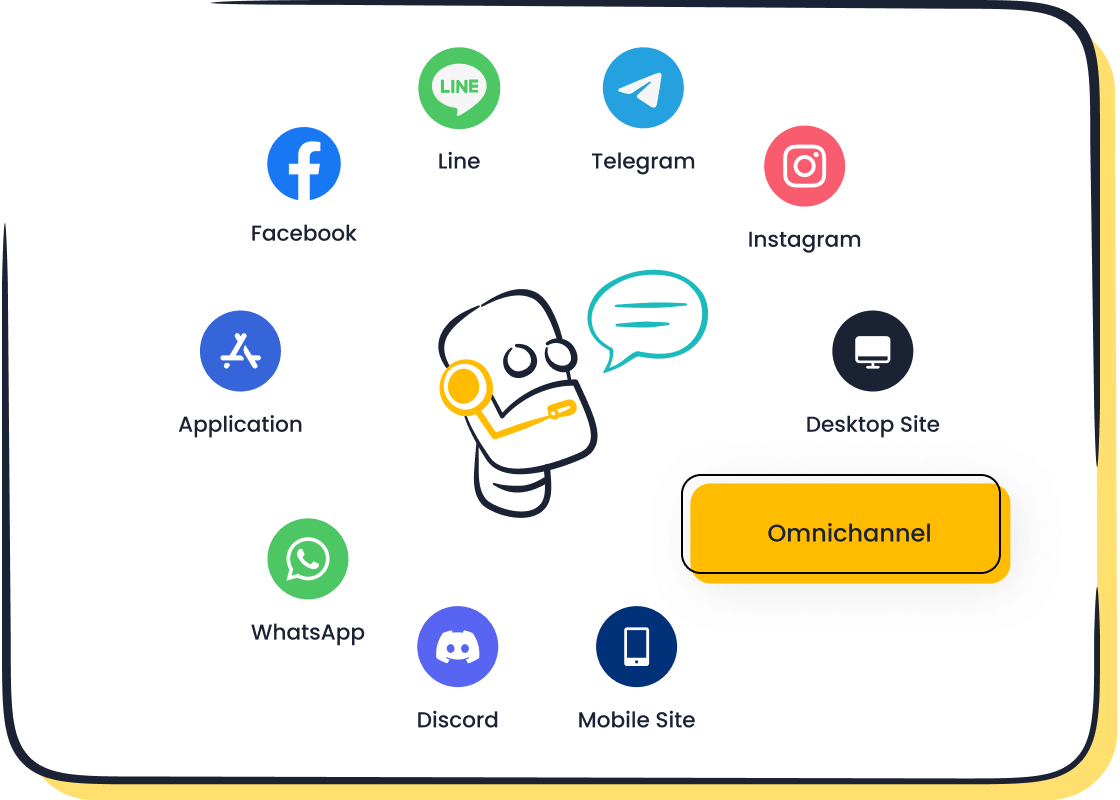
Sobot’s chatbot exemplifies this efficiency. It operates 24/7, triaging queries and assisting agents with complex issues. This approach not only improves response times but also enhances customer satisfaction. With tools like Sobot, businesses can ensure seamless interactions across multiple channels, from live chat to social media.
Consumer satisfaction rates with chatbot interactions
Customer satisfaction with chatbots has reached new heights. In 2025, live chat powered by AI chatbots is expected to achieve an 87.58% satisfaction rate, surpassing traditional support channels like phone assistance (44%) and email support (61%). This demonstrates the effectiveness of chatbots in meeting customer expectations.
| Support Channel | Satisfaction Rate |
|---|---|
| Live Chat (Chatbots) | 87.58% |
| Live Chat (Human) | 85.8% |
| Email Support | 61% |
| Phone Assistance | 44% |
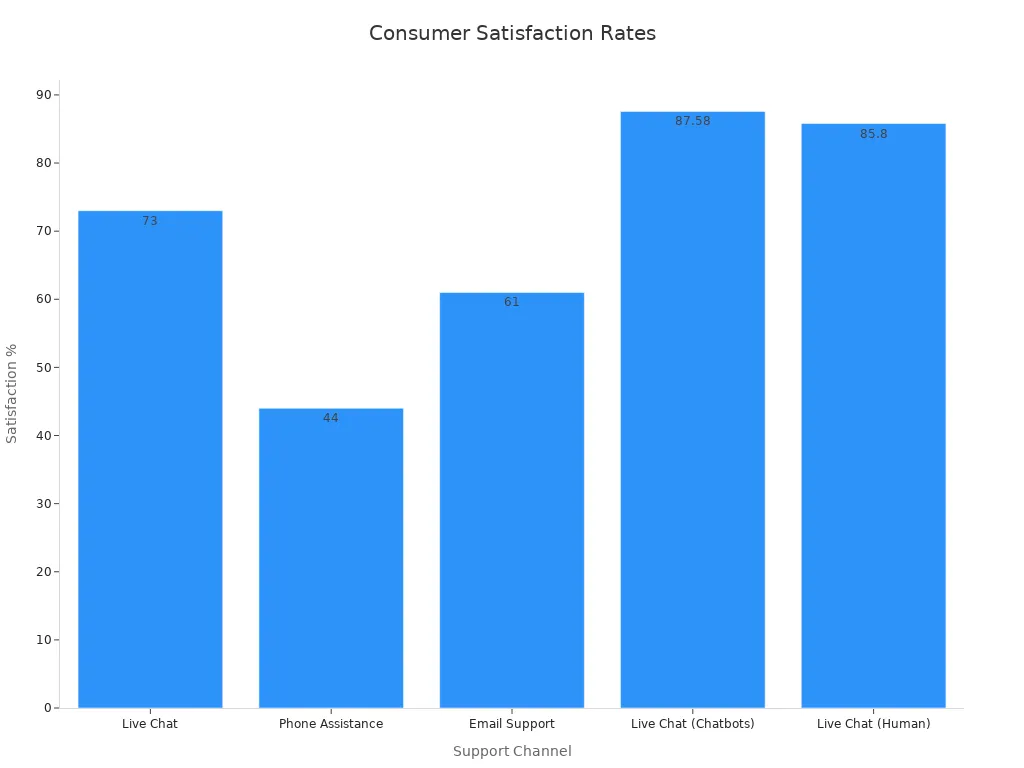
AI chatbots like Sobot’s not only provide accurate and timely responses but also personalize interactions based on customer preferences. This level of service builds trust and loyalty, making chatbots a preferred choice for many customers. As chatbot trends continue to evolve, you can expect even higher satisfaction rates in the future.
Cost savings and efficiency improvements for businesses
Chatbots have become a game-changer for businesses looking to cut costs and boost efficiency. By automating repetitive tasks, they free up human agents to focus on more complex customer needs. This shift not only reduces operational expenses but also enhances overall productivity.
Businesses that implement chatbots report significant financial benefits. For example:
- A single chatbot can handle the workload of 700 full-time agents.
- Companies have seen profit improvements of up to $40 million in a single year.
- Average query resolution times have dropped from 11 minutes to under 2 minutes.
These improvements translate into real savings. Chatbots can reduce customer service costs by up to 30%, and businesses are projected to save over $8 billion annually by using chatbots in call centers. These figures highlight why chatbot statistics are so compelling for organizations aiming to optimize their operations.
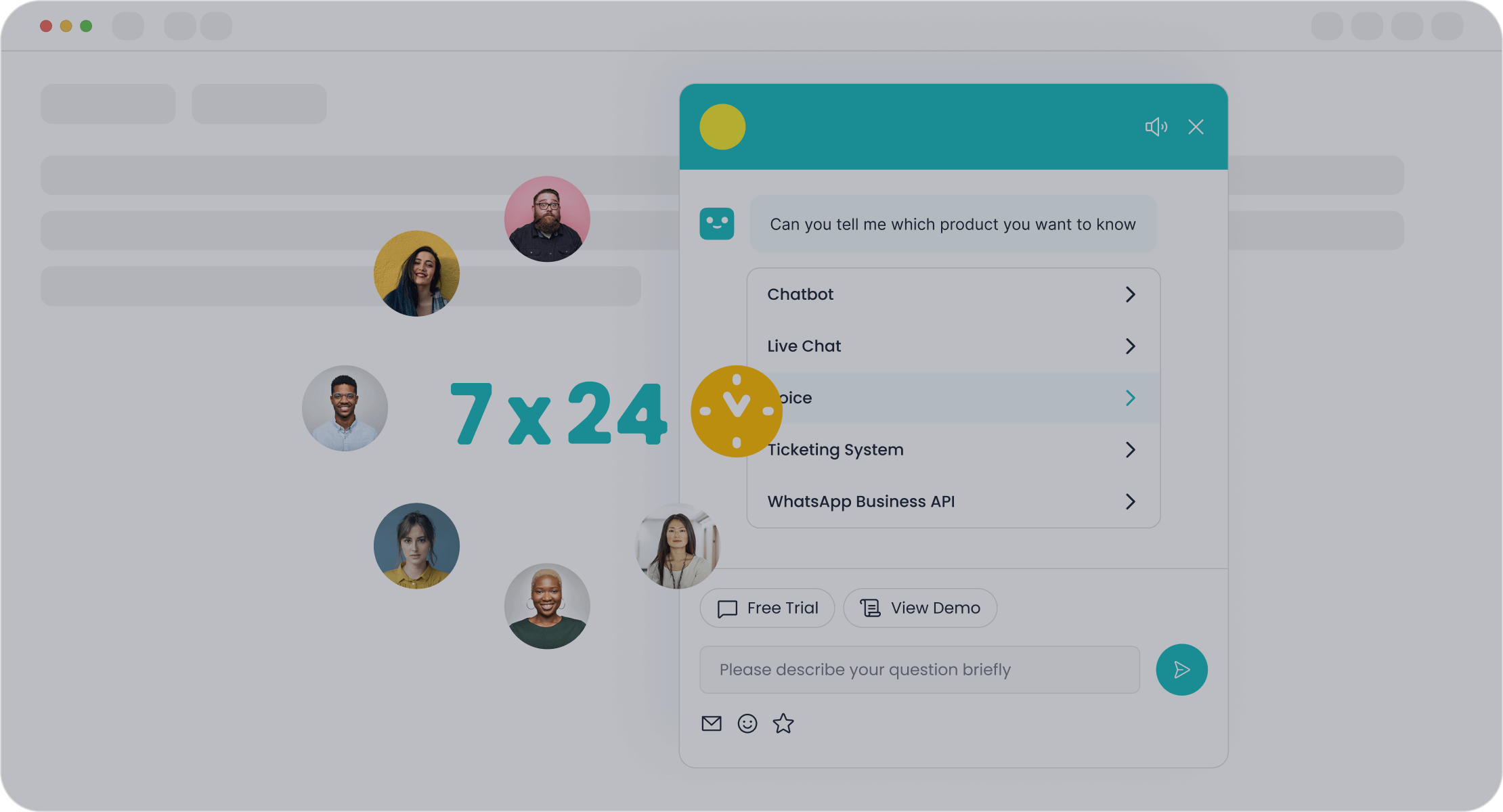
Sobot’s AI-powered chatbot exemplifies these benefits. It operates 24/7, triaging customer queries and resolving common issues without human intervention. This approach not only saves money but also ensures faster response times. For instance, Sobot’s chatbot improves productivity by 70% and reduces the need for additional agents, cutting expenses by up to 50%. These features make it an essential tool for businesses striving to stay competitive in 2025.
The efficiency gains extend beyond cost savings. Chatbots also enhance customer satisfaction by providing instant, accurate responses. This builds trust and loyalty, which are critical for long-term success. As chatbot adoption continues to grow, businesses that leverage these tools will remain ahead of the curve.
Tip: Investing in a chatbot like Sobot’s can help you achieve both short-term savings and long-term growth. Its no-code setup and multilingual capabilities make it easy to deploy across industries, from retail to healthcare.
For more insights into how chatbots are transforming customer service, explore the latest chatbot statistics and trends shaping the industry.
Chatbot Use Cases for Customer Service Across Industries

E-commerce: Order tracking and personalized recommendations
In the fast-paced world of e-commerce, chatbots have become indispensable for delivering efficient and personalized service. You can rely on chatbots to track orders, provide real-time updates, and even suggest products tailored to your preferences. For instance, H&M uses chatbots to assist with product recommendations, sizing queries, and order tracking. This approach has significantly increased customer engagement and sales.
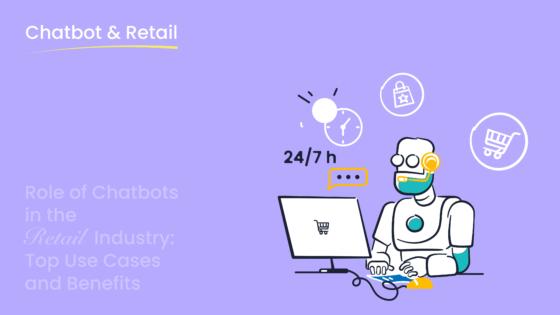
Chatbots also help reduce cart abandonment by offering proactive assistance. If you leave items in your cart, a chatbot can send reminders or offer discounts to encourage you to complete the purchase. Sobot’s AI-powered chatbot takes this a step further by integrating with multiple channels like WhatsApp and SMS. It ensures seamless communication, whether you’re checking order status or seeking product advice. With features like multilingual support and 24/7 availability, Sobot’s chatbot enhances your shopping experience while boosting business efficiency.
| Industry | Company | Chatbot Functionality | Impact on Customer Service |
|---|---|---|---|
| E-commerce | H&M | Assists with product recommendations, sizing queries, order tracking | Increased engagement and sales |
Financial services: Fraud detection and account inquiries
Chatbots in financial services are revolutionizing how you manage your accounts and protect your finances. They monitor transactions in real-time, flagging suspicious activity and alerting you immediately. For example, if a large purchase occurs in a foreign country, the chatbot prompts you to confirm the transaction. This proactive approach enhances security and builds trust.
Did you know that 37% of the U.S. population interacted with a bank’s chatbot in 2022? This number is expected to grow as more financial institutions adopt AI-driven solutions. All of the top 10 largest commercial banks now use chatbots to streamline customer service. These bots handle account inquiries, check balances, and send fraud alerts, ensuring you receive quick and secure assistance.

Sobot’s chatbot excels in this domain by offering real-time intent assistance and proactive messaging. It not only resolves common queries but also supports complex tasks like fraud detection. With its no-code setup and customizable workflows, Sobot’s chatbot empowers financial institutions to deliver exceptional service while maintaining security.
- Chatbots monitor transactions in real-time, flagging suspicious activity and alerting customers immediately.
- Approximately 37% of the U.S. population interacted with a bank’s chatbot in 2022.
- All of the top 10 largest commercial banks have deployed chatbots as part of their customer service strategy.
Healthcare: Appointment scheduling and patient support
In healthcare, chatbots play a crucial role in improving patient care and streamlining administrative tasks. They automate appointment scheduling, confirm availability, and send reminders, reducing no-shows and optimizing time management. For example, Ada Health uses chatbots to help patients book appointments efficiently while alleviating the workload of healthcare staff.
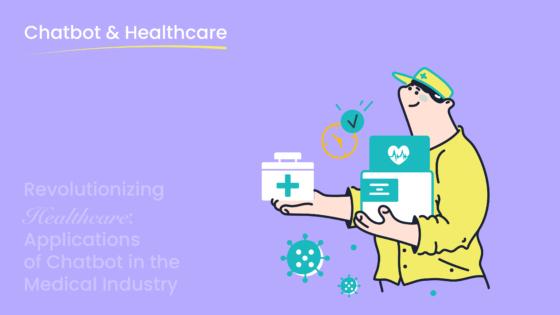
Chatbots also enhance patient support by providing symptom assessments and triage services. They match patients with available doctors instantly, eliminating double bookings and ensuring timely care. Sobot’s chatbot offers similar capabilities, operating 24/7 to handle inquiries and schedule appointments. Its multilingual support ensures accessibility for diverse patient populations, while its AI-driven insights help healthcare providers optimize their services.
- Chatbots automate appointment scheduling, confirming availability and sending reminders, which reduces no-shows.
- AI chatbots streamline appointment booking by matching patients with available doctors instantly.
- Automated reminders significantly reduce missed appointments, improving patient retention rates.
By integrating chatbots into healthcare systems, you can experience faster, more efficient service. Whether you’re scheduling an appointment or seeking medical advice, chatbots ensure you receive the support you need without delays.
Retail: Enhancing omnichannel customer experiences with Sobot
In retail, delivering a seamless customer experience across multiple channels has become essential. Customers expect consistent service whether they shop online, in-store, or through social media. Meeting these expectations can be challenging, but Sobot’s AI-powered chatbot makes it easier. By integrating omnichannel capabilities, Sobot helps you provide personalized and efficient customer service at every touchpoint.
Why Omnichannel Matters in Retail
Omnichannel strategies allow you to connect with customers wherever they are. A study by Harvard Business Review found that 73% of shoppers use multiple channels during their buying journey. This means your business must offer consistent support across platforms like WhatsApp, email, and live chat. Without this, you risk losing customers to competitors who provide better experiences.
Sobot’s chatbot ensures seamless communication across all channels. For example, if a customer starts a conversation on your website and continues it on WhatsApp, the chatbot remembers the context. This continuity builds trust and improves satisfaction.
Tip: Use Sobot’s chatbot to unify your customer interactions. It integrates with platforms like WhatsApp, SMS, and social media, ensuring a smooth experience for your customers.
How Sobot Enhances Retail Customer Service
Sobot’s chatbot offers several features that make it ideal for retail businesses. These include:
- 24/7 Availability: The chatbot operates round the clock, answering queries even when your store is closed.
- Multilingual Support: It communicates in multiple languages, making it perfect for global retailers.
- Personalized Recommendations: By analyzing customer data, the chatbot suggests products tailored to individual preferences.
For instance, a customer browsing your online store might receive a chatbot message recommending items based on their search history. This proactive approach can increase sales by up to 20%.
| Feature | Benefit |
|---|---|
| 24/7 Availability | Ensures customers get support anytime, improving satisfaction. |
| Multilingual Support | Helps you serve a diverse customer base effectively. |
| Personalized Suggestions | Boosts sales by offering tailored product recommendations. |
Real-World Impact: Sobot in Action
Retailers using Sobot’s chatbot have seen remarkable results. For example, OPPO, a global smart device brand, implemented Sobot to enhance its customer service. The chatbot resolved 83% of queries autonomously, reducing the workload on human agents. This efficiency led to a 57% increase in repurchase rates and a 94% positive feedback rate. These numbers highlight how Sobot can transform your retail operations.
Did you know? Sobot’s chatbot improves productivity by 70% and reduces service costs by up to 50%. It’s a cost-effective solution for modern retailers.
The Future of Retail with Sobot
As retail continues to evolve, omnichannel strategies will become even more critical. Sobot’s chatbot positions your business for success by providing consistent, personalized service across all channels. Whether you’re managing online orders, handling in-store inquiries, or engaging customers on social media, Sobot ensures a seamless experience.
Investing in Sobot’s chatbot not only enhances customer satisfaction but also drives loyalty and revenue. With its no-code setup and AI-driven insights, Sobot makes it easy for you to stay ahead in the competitive retail landscape.
Learn More: Explore how Sobot’s chatbot can revolutionize your retail customer service here.
Benefits of AI Customer Service Solutions
24/7 availability and reduced response times
AI customer service ensures your customers receive support anytime, anywhere. Unlike human agents, AI-powered chatbots operate round the clock, providing instant responses to inquiries. This availability significantly reduces response times, improving the overall customer experience. For example, companies like Bank of America and Starbucks have achieved response time reductions of over 40% and nearly 50%, respectively. These improvements directly enhance customer satisfaction, as shown in the table below:
| Company | Reduction in Response Times | Customer Satisfaction Improvement |
|---|---|---|
| Bank of America | Over 40% | Improved scores |
| Starbucks | Nearly 50% | Significant boost |
| Company XYZ | 40% | 25% increase |

Sobot’s AI-powered chatbot exemplifies this efficiency. It operates 24/7, handling routine queries autonomously and escalating complex issues to human agents when necessary. This seamless integration ensures faster resolutions and happier customers.
Cost-effectiveness and operational efficiency
AI customer service solutions help you save money while improving efficiency. Automating repetitive tasks reduces the need for large support teams, cutting operational costs significantly. For instance, a major retail company used AI to optimize inventory management, avoiding overstocking and understocking. Similarly, healthcare providers have reduced administrative costs by using AI to manage patient data more effectively.
Here are some examples of how businesses achieve cost savings with AI:
- Airbnb uses AI to minimize overhead costs and maximize revenue.
- Amazon employs AI to optimize delivery routes, reducing shipping expenses.
- AI-driven robots in Amazon’s warehouses lower operational costs and boost efficiency.
Sobot’s chatbot delivers similar benefits. By automating customer interactions, it reduces the need for additional agents, cutting expenses by up to 50%. Its no-code setup and multilingual capabilities make it a cost-effective solution for businesses of all sizes.
Personalization through AI-driven insights
AI-driven CX (customer experience) thrives on personalization. AI tools analyze customer behavior, feedback, and interaction history to deliver tailored experiences. This approach not only boosts engagement but also drives revenue growth. Companies using AI-driven personalization report a 20% increase in sales and a 25% improvement in marketing ROI. For example, Amazon generates 35% of its revenue through AI-based recommendations.
| Metric | Insight |
|---|---|
| Higher ROI | 25% increase in marketing ROI; 72% of advertisers see improved ROI. |
| Revenue Uplift | 20% sales increase; 40% more revenue from personalization efforts. |
| Stronger Engagement | 2× higher engagement rates; 6× higher transaction rates for emails. |
| Conversion and Retention | 1.7× higher conversion rates; 28% lower churn rates. |
| Customer Satisfaction & Loyalty | Satisfaction scores up by 30%; 78% of consumers prefer personalized content. |
Sobot’s chatbot leverages AI to provide personalized, AI-powered experiences. It uses real-time intent analysis to offer tailored recommendations and proactive messaging. This personalization builds trust and loyalty, ensuring your customers feel valued.
Boosting customer satisfaction and loyalty
Customer satisfaction and loyalty are essential for long-term business success. Chatbots powered by AI have become key tools for improving these metrics. They provide faster resolutions, personalized experiences, and consistent support, which customers value highly. Businesses that implement chatbots report significant improvements in customer service outcomes.
For example, AI software increases customer satisfaction (CSAT) scores by an average of 12%. Positive customer experiences can raise satisfaction levels by as much as 20%. Chatbots also help businesses resolve complaints faster, with 90% of companies reporting quicker resolutions. Additionally, 80% of businesses note increased call volume capacity, allowing them to serve more customers effectively. These benefits translate into higher satisfaction scores, which often lead to stronger customer loyalty.
| Statistic Description | Percentage |
|---|---|
| Businesses seeing faster complaint resolution | 90% |
| Businesses reporting increased call volume capacity | 80% |
| Increase in customer support satisfaction scores | 24% |

Sobot’s AI-powered chatbot exemplifies these advantages. It operates 24/7, ensuring customers receive immediate assistance. Its multilingual capabilities make it accessible to diverse audiences, while its no-code setup allows businesses to deploy it quickly. By automating routine queries, Sobot’s chatbot frees human agents to focus on complex issues, improving overall service quality. These features contribute to higher satisfaction rates and build trust with customers.
Tip: Customers who feel valued are more likely to return. Using tools like Sobot’s chatbot helps you deliver personalized and efficient service, fostering loyalty.
Chatbots also enhance loyalty by creating seamless experiences across channels. For instance, Sobot’s omnichannel support ensures customers receive consistent service whether they interact via WhatsApp, email, or live chat. This continuity strengthens relationships and encourages repeat business. As customer expectations rise, adopting AI-driven solutions like Sobot’s chatbot positions your business for success.
Challenges in Chatbot Implementation
Addressing complex customer queries
Chatbots excel at handling routine questions, but they often struggle with complex customer queries. These challenges arise because chatbots lack critical thinking and creativity, which are essential for solving intricate problems. For example:
- Chatbots may not have the necessary information in their knowledge base to address specific issues.
- They cannot analyze problems from multiple perspectives, limiting their ability to provide nuanced solutions.
- Their responses often lack the originality needed to resolve unique customer concerns.
Insight: The success of chatbot implementation depends on iterative improvements. Regular updates to the knowledge base and collaboration with technology providers can help address these limitations effectively.
Sobot’s AI-powered chatbot mitigates these challenges by leveraging advanced AI models and a robust knowledge base. It uses real-time intent analysis to understand customer needs better and escalate unresolved issues to human agents. This hybrid approach ensures that even complex queries receive timely and accurate resolutions.
Privacy and data security concerns
Privacy and data security remain significant concerns when implementing AI-powered chatbots. Mishandling sensitive information can lead to severe consequences, as illustrated by several high-profile incidents:
| Incident/Study | Description |
|---|---|
| British Airways Data Breach | Exposed personal details of 500,000 customers, resulting in a £183M fine. |
| Samsung Data Leak via ChatGPT | Employees leaked confidential data, prompting a ban on generative AI tools. |
| Air Canada Refund Incident | A customer manipulated a chatbot, causing financial losses. |
| GitHub Data Exposure | AI chatbots unintentionally exposed private repository data. |
These examples highlight the importance of robust security measures. Regulations like GDPR and CCPA emphasize the need for businesses to protect customer data. Sobot addresses these concerns by offering encrypted backups, GDPR compliance, and secure data handling practices. Its AI solutions ensure that your automated customer service remains both efficient and secure.
Balancing automation with human interaction
While automation improves efficiency, customers still value human interaction for complex or emotional issues. Surveys reveal that 53% of consumers prefer live agents for intricate inquiries, while 46% feel comfortable with AI assisting human agents. However, dissatisfaction with chatbots remains high, especially among older generations.
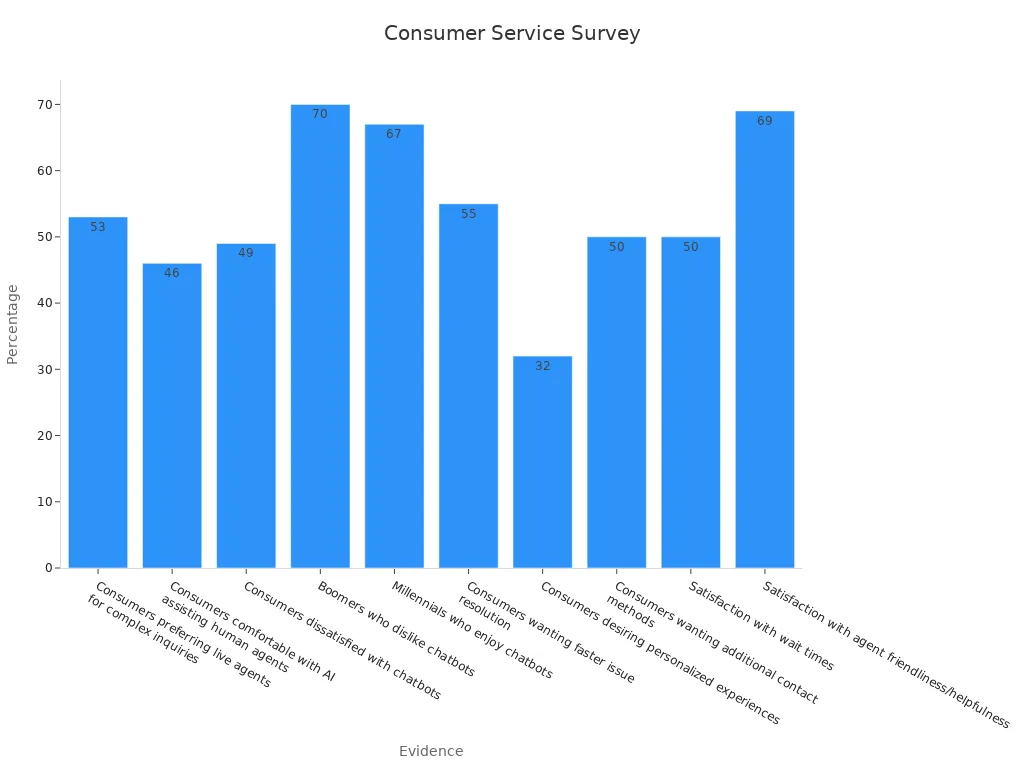
Sobot’s chatbot bridges this gap by seamlessly integrating automation with human support. It handles routine tasks autonomously while escalating complex issues to live agents. This balance ensures faster resolutions without compromising the personal touch customers expect. By adopting such a hybrid model, you can enhance customer satisfaction and loyalty.
Overcoming customer resistance to AI solutions
Customer resistance to AI chatbots often stems from unfamiliarity or skepticism about their capabilities. Addressing these concerns requires a thoughtful approach that builds trust and demonstrates value.
Start by clearly communicating the benefits of AI solutions. Explain how chatbots improve customer service by providing faster responses, reducing wait times, and offering 24/7 availability. For example, Sobot’s AI-powered chatbot operates around the clock, ensuring customers receive immediate assistance. Highlighting these advantages helps customers see how AI enhances their experience.
Involving your team in the AI adoption process can also reduce resistance. When agents understand how chatbots complement their work, they feel more confident about the technology. Training sessions empower your staff to collaborate effectively with AI, ensuring seamless customer interactions. Sobot’s no-code chatbot simplifies this process, allowing agents to focus on complex queries while the chatbot handles routine tasks.
Exciting your customers about AI’s role can further ease their concerns. Share examples of how chatbots personalize interactions or solve problems efficiently. For instance, Sobot’s chatbot uses real-time intent analysis to provide tailored recommendations, making customers feel valued. When customers see the practical benefits, they become more comfortable with the technology.
Finally, emphasize transparency. Reassure customers that their data remains secure and private. Sobot’s chatbot complies with GDPR regulations and uses encrypted backups, addressing common privacy concerns. This level of security builds trust and encourages adoption.
By combining clear communication, team involvement, and transparency, you can overcome resistance to AI chatbots. These strategies not only improve customer satisfaction but also position your business as a forward-thinking leader in customer service.
Tip: Use Sobot’s chatbot to demonstrate the value of AI solutions. Its multilingual support and proactive messaging make it an ideal tool for engaging customers and building trust.
Future Trends in Chatbot Technology
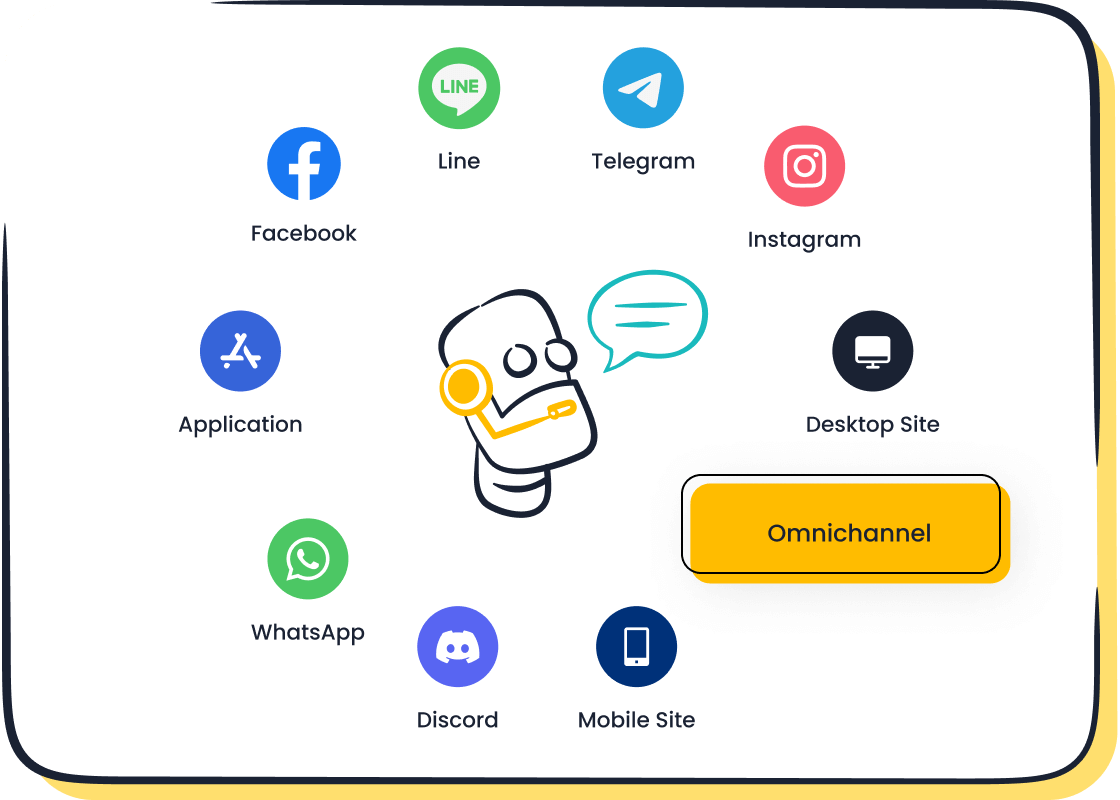
Advancements in natural language processing
Natural language processing (NLP) is transforming how chatbots interact with users. By 2025, breakthroughs in conversational AI and large language models will make chatbot interactions more intuitive and human-like. These advancements will allow chatbots to understand context, emotions, and even complex queries, enhancing their ability to provide accurate and personalized responses.
For example, real-time sentiment analysis will enable chatbots to gauge customer emotions during interactions. This capability can improve marketing strategies and customer service by tailoring responses to match the user's mood. Multilingual NLP applications will also break language barriers, making chatbots accessible to a global audience. Sobot’s AI-powered chatbot already leverages multilingual NLP to provide seamless communication across diverse languages, ensuring businesses can connect with customers worldwide.
| Breakthroughs | Description |
|---|---|
| Conversational AI | Enhances human-computer interactions, making them more intuitive and effective. |
| Real-Time Sentiment Analysis | Gauges customer emotions, enhancing marketing strategies and customer service. |
| Multilingual NLP Applications | Overcomes language barriers, enabling effective communication across diverse audiences. |
These trends in NLP will redefine customer service, making chatbots indispensable for businesses aiming to deliver exceptional user experiences.
Voice-enabled chatbots and their growing adoption
Voice-enabled chatbots are gaining traction as more users prefer hands-free, conversational interactions. By 2025, the chatbot market is expected to grow at an annual rate of 23%, with voice capabilities playing a significant role. These chatbots can understand context and emotions, enabling personalized conversations that feel natural and engaging.
In the United States, 36% of businesses have already adopted chatbots, and this number is projected to rise. Voice-enabled chatbots are particularly useful in industries like healthcare and retail, where they assist with tasks such as appointment scheduling and product recommendations. Sobot’s chatbot integrates voice capabilities, allowing businesses to offer real-time support through channels like WhatsApp and SMS. This feature enhances accessibility and ensures a seamless customer experience.
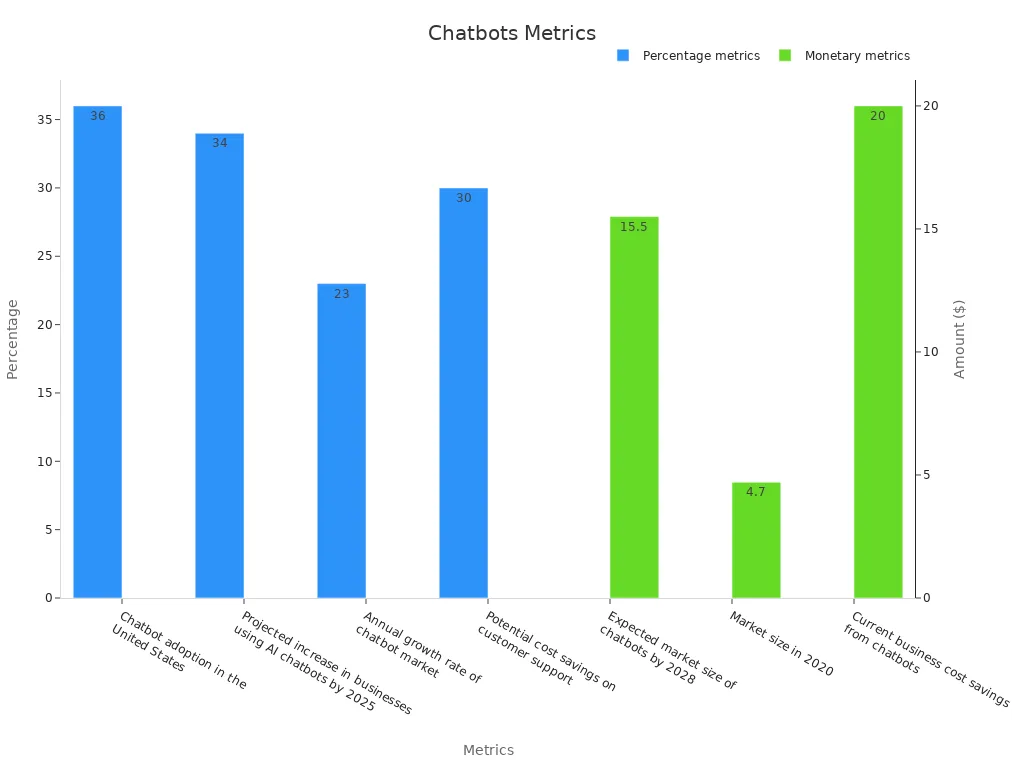
As voice technology continues to evolve, businesses that adopt voice-enabled chatbots will stay ahead of the curve, offering innovative solutions that meet customer expectations.
Proactive customer service strategies with AI
Proactive customer service is becoming a key trend in AI-driven solutions. Instead of waiting for customers to reach out, chatbots now anticipate needs and offer assistance before issues arise. For instance, AI-powered tools can send reminders for abandoned carts, recommend products based on browsing history, or notify users about upcoming appointments.
Case studies highlight the effectiveness of proactive strategies. A retail chain using AI for sales calls saw a 34% increase in conversion rates for abandoned carts and a 27% rise in loyalty program enrollments. Similarly, a telecommunications company reduced average handle time by 42% and achieved a 78% first-call resolution rate. Sobot’s chatbot excels in proactive engagement by using real-time intent analysis to deliver tailored recommendations and proactive messaging. This approach not only boosts customer satisfaction but also drives revenue growth.
| Case Study Description | Key Metrics | Results |
|---|---|---|
| Retail Chain AI Sales Calls | Conversion rate for abandoned carts | 34% increase |
| Loyalty program enrollment | 27% increase | |
| Telecommunications AI Call Center | First-call resolution | 78% |
| Average handle time | 42% decrease |
Proactive strategies ensure customers feel valued and supported, fostering loyalty and long-term relationships.
The role of Sobot's Chatbot in shaping the future of customer service
Sobot's Chatbot is redefining customer service by setting new standards in efficiency, accuracy, and customer satisfaction. As businesses increasingly rely on AI-powered tools, Sobot's Chatbot stands out as a leader in shaping the future of customer interactions.
Exceptional Performance Metrics
Sobot's Chatbot delivers measurable results that demonstrate its effectiveness. Its ability to reduce inbound discussions by 20% and achieve a 96% positive feedback rate highlights its impact. The chatbot ensures 80%+ response accuracy, contributing to a 97% customer satisfaction (CSAT) score. These metrics underline its role in enhancing customer experiences.
| Metric | Value |
|---|---|
| Reduction in inbound discussion | 20% |
| Positive feedback rate | 96%+ |
| Accuracy of responses | 80%+ |
| Customer satisfaction (CSAT) | 97% |
| Problem resolution rate | 85% |
| Overall customer happiness | 99% |
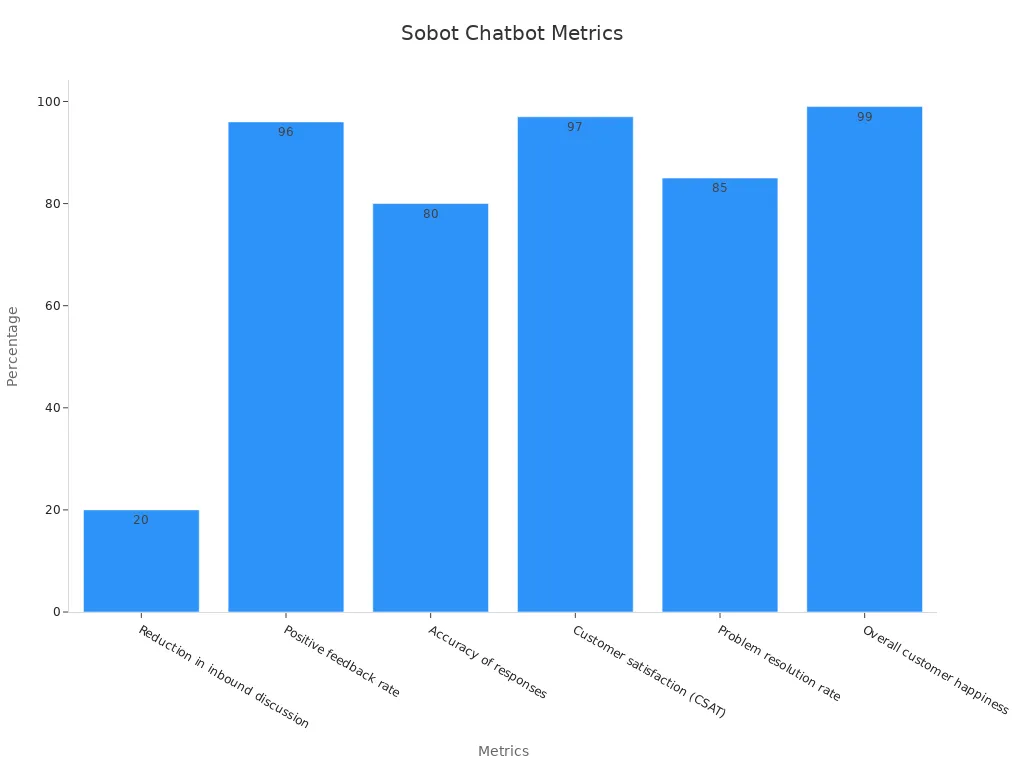
Transforming Customer Service Trends
Sobot's Chatbot operates 24/7, ensuring customers receive immediate assistance. Its multilingual capabilities make it accessible to global audiences, while its no-code setup simplifies deployment. By automating routine queries, the chatbot allows human agents to focus on complex issues, improving productivity by 70%. This hybrid approach balances automation with human interaction, a key trend in modern customer service.
Proactive engagement is another area where Sobot excels. The chatbot uses real-time intent analysis to anticipate customer needs, offering tailored recommendations and reminders. For example, it can notify customers about abandoned carts or upcoming appointments, boosting satisfaction and loyalty.
Tip: Businesses using Sobot's Chatbot report a 99% overall customer happiness rate, showcasing its ability to build trust and long-term relationships.
Sobot's Chatbot is more than a tool; it is a transformative solution that empowers businesses to meet evolving customer expectations. By adopting this technology, you can stay ahead in the competitive landscape of customer service.
Chatbots have revolutionized customer service, offering faster responses and improving efficiency. By 2025, the live chat market is expected to grow significantly, with a projected worth of $1,721.43 million by 2030 and a CAGR of 8.82%. These advancements highlight the shift toward automated solutions. While 86% of customers still prefer human interaction for complex issues, chatbots excel at handling simple queries like product availability or operating hours.
Sobot’s AI-powered chatbot plays a pivotal role in this transformation. It combines 24/7 availability with multilingual support, ensuring seamless customer interactions. Its ability to automate routine tasks while escalating complex issues to agents strikes the perfect balance between AI and human touch. By adopting tools like Sobot, you can enhance customer satisfaction and stay ahead in the evolving landscape of customer service.
FAQ
What is a chatbot, and how does it work?
A chatbot is an AI-powered tool that automates conversations. It uses natural language processing (NLP) to understand and respond to user queries. For example, Sobot’s chatbot operates 24/7, handling routine customer service tasks like order tracking and FAQs across multiple channels.
How can chatbots improve customer service?
Chatbots enhance customer service by providing instant responses, reducing wait times, and personalizing interactions. For instance, Sobot’s chatbot improves productivity by 70% and resolves 83% of queries autonomously, ensuring faster and more efficient support.
Are chatbots secure for handling sensitive information?
Yes, modern chatbots prioritize data security. Sobot’s chatbot complies with GDPR and uses encrypted backups to protect customer data. This ensures your information remains safe during interactions, even in industries like healthcare and finance.
Can chatbots handle complex customer queries?
Chatbots excel at routine tasks but may escalate complex issues to human agents. Sobot’s chatbot uses real-time intent analysis to identify when human intervention is needed, ensuring customers receive accurate and timely resolutions.
Do chatbots support multiple languages?
Yes, many chatbots, including Sobot’s, offer multilingual support. This feature allows businesses to serve diverse audiences effectively. For example, Sobot’s chatbot communicates in over 10 languages, making it ideal for global customer service operations.
Tip: Learn more about Sobot’s AI-powered chatbot and its multilingual capabilities here.
See Also
The 10 Most Effective Chatbots for Websites This Year
10 Innovative Websites Leveraging Chatbots in 2024
Enhancing E-commerce Customer Satisfaction Through Chatbots
